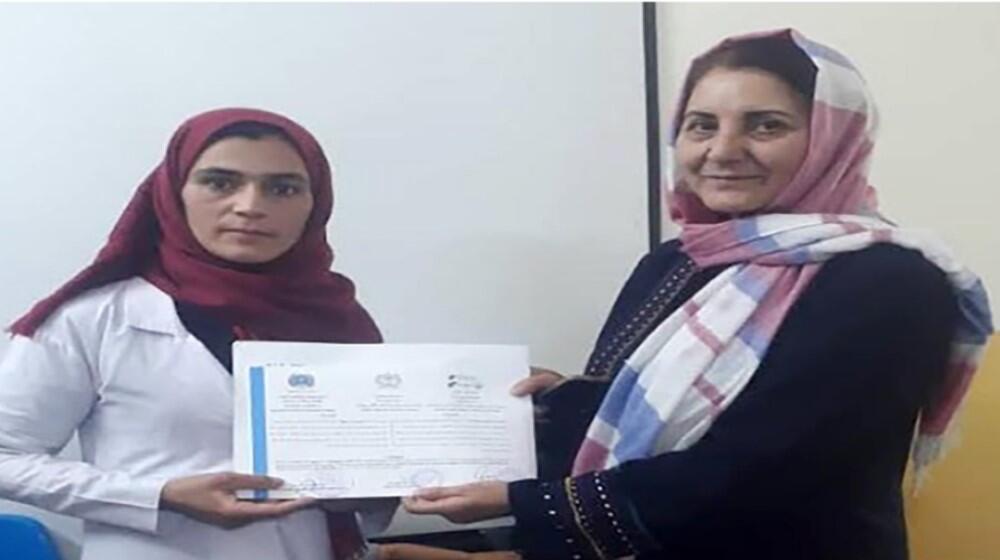Faryab, Afghanistan – Growing up, midwife Sima Ayobi witnessed how pregnant women struggled to access maternity care in their remote village in Faryab province. Experiencing the same challenge later on in her life pushed her to take the path of midwifery as a profession.
“Even now, we don’t have health professionals, including midwives, to support pregnant women in our village,” Ms. Ayobi said. “I also had a hard time with my own pregnancy and that’s when I decided to become a midwife so I can support the women in my village.”
Ms. Ayobi is one of the 36 midwives currently undergoing a two-month refresher training in Afghanistan’s northern region. After completing the training, the midwives will be deployed to the Family Health Houses in the region to support the provision of reproductive, maternal, newborn, child and adolescent health care. She will be the first trained midwife to serve her own community.
About 10 per cent of the country’s population live in remote areas where the nearest health facility is 10 kilometers away, on the average. The Family Health House (FHH) program is an initiative of UNFPA to address the lack of health care for women, newborns and children in these hard-to-reach areas.
Afghanistan has the highest maternal death rates in the Asia and the Pacific region with about one woman dying every two hours due to preventable pregnancy and childbirth complications. Women’s lack of access to facilities for safe deliveries is one of the contributing factors to this grim situation.
At the beginning of the year, UNFPA was supporting 172 FHHs across Afghanistan. With the support of the Special Trust Fund for Afghanistan (STFA), 58 more FHHs will be constructed in the northern region to reach more people living in remote communities, including Ms. Ayobi’s village in Pashtun Koot District.
“The current situation of health services in our village is very poor. There is no health facility and people have to travel for up to three hours to get to the district center to receive health services,” Ms Ayobi said. Once she finishes her refresher training, Ms. Ayobi will be the first midwife in the first FHH in her own village.
Ms. Ayobi did not have the chance to work as a full-time midwife since graduating from a midwifery institute in 2017 that’s why she is grateful for the opportunity presented to her by UNFPA to work for the FHH under the expansion program supported by the STFA.
“My family, especially my husband, is excited for this opportunity and also for the fact a Family Health House will be established in our village,” she told UNFPA. “I am ready to work!”
Today, there are 196 functioning FHHs in the country and UNFPA plans to scale up the intervention to 1,500 in the immediate future.



